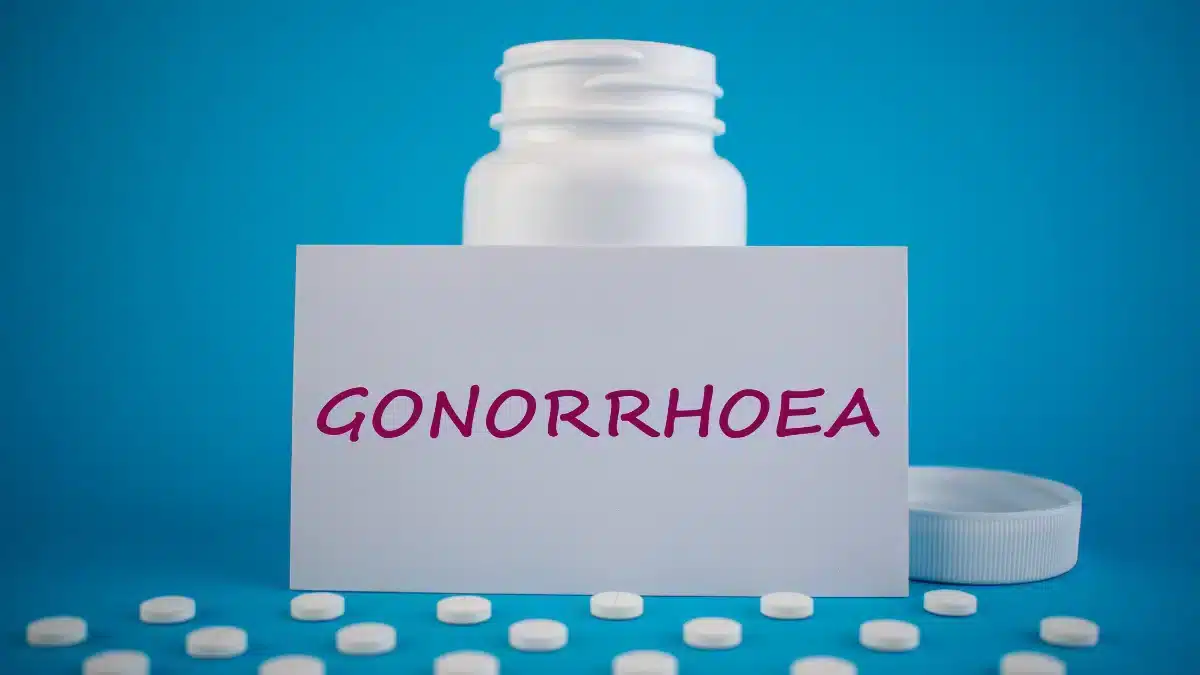Gonorrhea Medication: An Effective Approach to Treat Bacterial STD
As per the Cleveland Clinic, Gonorrhea is among the most common STDs caused by a bacterial infection called Neisseria Gonorrhea.
Generally, Gonorrhea is asymptomatic but sometimes can show symptoms, such as genital discharge and burning.
Depending on the early signs and diagnosis, Gonorrhea can be treated with the efficacy of antibiotics.
Antibiotics can kill the disease-causing pathogen and reduce the risks of bacterial growth and transmission.
This comprehensive article will elaborate on the standard Gonorrhea medication and certain considerations to ensure a faster recovery.
What are standard Gonorrhea medications
The therapy for the Gonorrhea infection is given during the initial clinical visits.
It depends on suspicion of an STD caused by a common symptom, such as genital discharge or sexual intercourse with an infected person.
The following Gonorrhea medication can play a pivotal role in treating the condition effectively:
Ceftriaxone
People infected with Gonorrhea are often prescribed an intramuscular or intravenous shot of Ceftriaxone.
The Centers for Disease Control and Prevention recommends a 500 mg dose of Ceftriaxone for effective results.
Your clinician can also prescribe additional antibiotics, such as 100 mg Doxycycline twice a day for seven days, to clear the co-infection of Chlamydia.
When two or more pathogens infect a host simultaneously, it is referred to as co-infection.
Ceftriaxone (shot) is paired with Doxycycline (oral) to treat complicated gonococcal infections, such as Pelvic Inflammatory Disease and Epididymitis.
Azithromycin
As per NCBI, Azithromycin was able to eradicate N. Gonorrhea from the people infected with Gonorrhea.
Further, an alternative antimicrobial regimen is supported in Canada for Gonorrhea treatment.
It includes a dose of 800 mg of Cefixime (taken orally) paired with 1 gram of Azithromycin.
Zoliflodacin
In the middle of antimicrobial resistance and failures of various standard treatments, a new antibiotic, Zoliflodacin, will soon be coming as Gonorrhea medication.
The medication will be taken orally and has already met its primary endpoints, such as treating people with uncomplicated Gonorrhea.
The antibiotic was well-tolerated by infected people and does not cause adverse effects like death.
Some other antibiotics used to treat Gonorrhea may include Oral Amoxicillin and Probenecid for uncomplicated Gonorrhea.
Antibiotic resistance in N. Gonorrhea

N. Gonorrhea is resistant to many medicines, including Penicillin, Tetracyclines, Sulphonamides, Quinoles, and Cephalosporines.
These antibiotic-resistant N. Gonorrhea are often referred to as super-Gonorrhea.
Antibiotics have always been the first choice when treating bacterial infections like Gonorrhea and Chlamydia.
However, the bacteria can become resistant to antimicrobial drugs, failing various standard antibiotics.
The following factors can cause drug resistance in bacteria:
- Poor quality of antibiotic drug
- Overuse of antimicrobials
- Genetic mutations
- Unrestricted access to drugs
- Inappropriate selection of drugs
Some considerations
People infected with Gonorrhea should keep certain considerations in mind while taking antibiotics for faster recovery:
Complete the medication course
People should follow the prescribed dosage to avoid adverse side effects.
It is also important to complete the recommended antibiotic course for the recovery of STDs.
Regular check-ups

People should visit their healthcare practitioner during treatment without missing a single appointment.
It will help you ensure a faster recovery.
Abstain for sexual intercourse
Abstaining for at least seven days after the antibiotic course is recommended for preventing the transmission of STDs to your sexual partner.
You must use a barrier method after completing treatment to avoid your next encounter with an STD.
Conclusion
Gonorrhea is a prevalent Sexually Transmitted Disease caused by the bacteria Neisseria Gonorrhea.
Depending on the signs and symptoms, effective medicines can be used to treat Gonorrhea symptoms.
The treatment for N. Gonorrhea includes a single shot of 500 mg of Ceftriaxone.
However, if you are allergic to Ceftriaxone, your doctor may prescribe another antibiotic for the treatment of Gonorrhea.
Amid the resistance in N. Gonorrhea caused by various factors, a new antibiotic, Zoliflodacin, will soon be introduced as a novel Gonorrhea medication.
You can also ensure a faster recovery by completing the antibiotic course, routine check-ups, and abstaining from sexual activity.
Also, avoid self-prescribed medications and consult a healthcare practitioner to prevent serious health complications.
Frequently Asked Questions
Which antibiotic is best for Gonorrhea?
According to the CDC, intramuscular or intravenous Ceftriaxone is the best antibiotic for treating Gonorrhea. Further, it can be paired with 100 mg of Doxycycline given twice a day for seven days to clear the co-infection of Chlamydia. Consult a healthcare practitioner to avoid serious complications.
Can Gonorrhea be cured with medicine?
Yes, Gonorrhea can be treated with antibiotics. According to the CDC, a single dose of 500 mg of Ceftriaxone can effectively treat Gonorrhea. Your clinician can also recommend additional antibiotics, such as 100 mg Doxycycline with Ceftriaxone to clear co-infection Chlamydia.
What is the best medicine for Gonorrhea?
Antibiotic-resistant, super Gonorrhea has contributed to the failure of various standard medicines. However, the CDC recommends a single dose of intramuscular Cefriaxone for treating Gonorrhea. Also, a new antibiotic, Zoliflodacin, will become a novel drug to treat super-Gonorrhea and is well-tolerated by people.
Which antibiotic can treat Gonorrhea?
According to the CDC, a single dose of 500 mg of Ceftriaxone can effectively treat Gonorrhea. Your clinician can also recommend additional antibiotics, such as 100 mg Doxycycline with Ceftriaxone to clear co-infection Chlamydia. However, you should consult with your doctor before taking any medicines.
WowRx uses only high-quality sources while writing our articles. Please read our content information policy to know more about how we keep our content reliable and trustworthy.






